MALAYSIANSKINI | From living with plantation workers in her early 20s to entering her first election in her early 60s, PSM central committee member Mohana Rani Rasiah’s political journey is a story of tireless dedication to the downtrodden.
Rani, recognised by her middle name which means “queen” in Sanskrit, co-founded PSM in 1998 - the country’s longest-standing left-wing political party.
But it was only two decades after PSM’s formation, in the 2018 general election, that Rani, at the age of 63, made her electoral debut contesting the Buntong state seat in Perak.
Despite many years in politics, the veteran politician admitted to being too shy to approach people directly for their votes and baulked at the idea of giving political speeches with sweet promises.
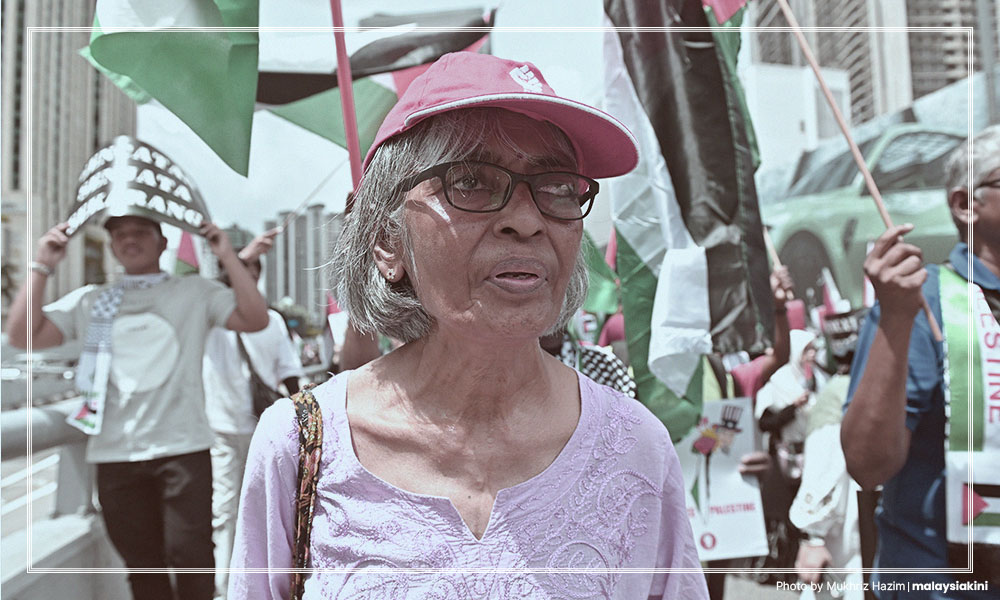
“I am very much an activist and in PSM, we don’t consider ourselves as typical politicians.
“The unique culture of PSM revolves around moral authority rather than hierarchical power.
“It’s about the work we do and staying true to our beliefs, rather than wielding authority over others based on position,” she said.
Politics grounded in service
At 69, Rani is possibly among the few active female politicians who have passed the retirement age.
Along with other PSM members, she continues to defy conventional politicking by avoiding the typical routine of party rallies. Instead, her way of doing politics is grounded in service.
Much of her work is centred around her service centre in Buntong, which she continues to operate despite her defeat in the 2018 polls.
Here, she receives an average of 10 complaints a day, ranging from labour violations and citizenship issues, to evictions, cheating, and domestic disputes.
As PSM’s migrant desk coordinator, she also receives tip-offs from across Malaysia and responds with direct action from rescuing exploited migrant workers and lodging labour violation complaints, to advocacy work like issuing media statements and strategising with other migrant rights groups.
The work means frequent travel from between Perak, Putrajaya, and Kuala Lumpur - a task most people half her age would grow weary of.
But years on, Rani keeps going, rooming in the local YMCA whenever she is in the capital.
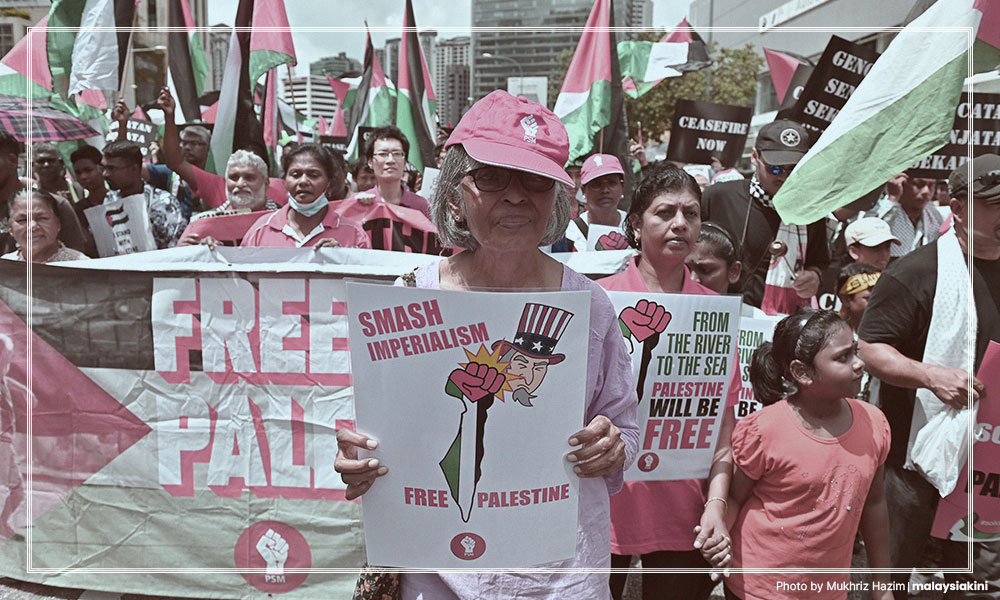
It is this steadfastness which saw her travel by bus from Perak and then march 3km without rest at the Save Palestine rally in Kuala Lumpur on March 2, carrying a placard which read: “Smash Imperialism, Free Palestine.”
“I would have walked some more if I had worn better shoes,” she said, referring to her worn-out sandals.
No sacrifice, no regrets
Rani’s delicate frame and gentle voice belie the unwavering steely grit of the woman who has withstood multiple police arrests, government intimidation, and familial sacrifices.
In her 20s, she decided to eschew a comfortable career, leaving the banking industry to take on a less lucrative teaching job which brought her back to Sungai Siput and enabled her to do social work.
Before the formation of PSM, Rani worked in Alaigal, an NGO formed by grassroots activists, including her husband, Dr Michael Jeyakumar Devaraj, who is the current PSM chairperson and former Sungai Siput MP.
They handled eviction cases and held peaceful protests, which drew the ire of the authorities, who did not hesitate to arrest them and fellow activists.
“We stirred up the (Perak) state government administration because we highlighted many issues and they would make sweeping arrests until their actions were criticised. Then they stopped,” said Rani.
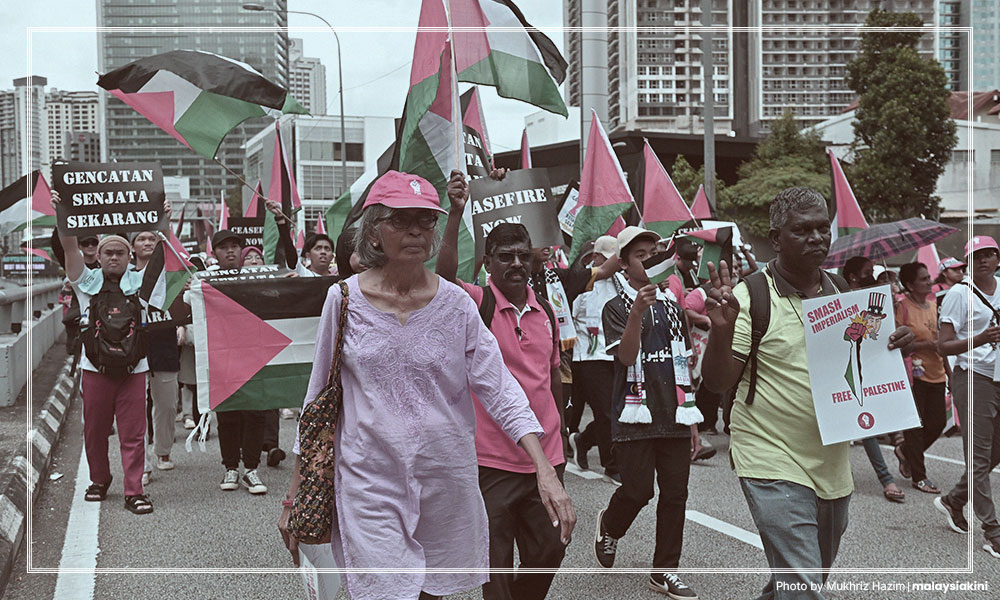
Arrests and protests do not sound like a bed of roses, but Rani does not see the path of resistance that she chose as a form of sacrifice.
“You only call it a sacrifice if you have regrets. When you wish you had chosen a different path, or missed certain things in the life you are leading now, then you might say there’s sacrifice.
“I don’t,” said the mother of one.
Along with her husband - whom she refers to as her “comrade” - Rani said making these unconventional choices gave her a greater sense of fulfilment.
Instead of placing value in societal expectations of her, she is more driven by the socialist ideology and issues of social and economic disparities, which she sees every day.
“I am someone who becomes indignant and impassioned when confronted with injustice.
“Saying no isn’t easy when there’s a chance to contribute positively and this is why I find myself involved in many causes,” she said.
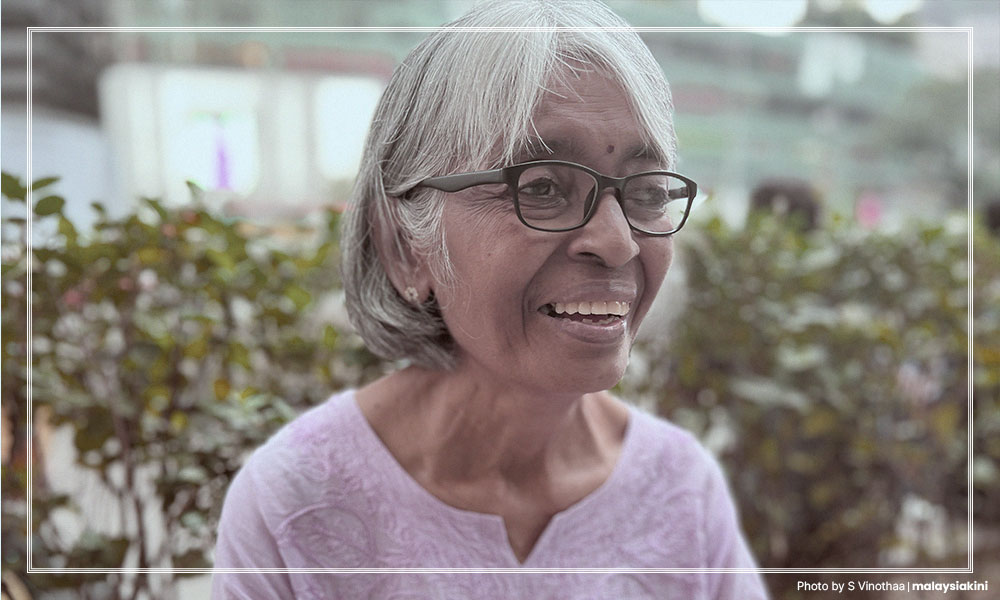
Animatedly, she shared that one of those causes is the plight of lorry drivers, who are deprived of employment benefits and work in punishing conditions due to contracts which force them to earn commissions by trip.
While most in society turn a blind eye to it, Rani sees a clear-cut case of labour exploitation when she speaks to lorry drivers, and because of that, she has been advising their campaign, and advocating their cause throughout the nation.
The little socialist
Her awareness of social inequalities began to take root during her formative years as she observed her primary schoolmates.
“I noticed poor yet large families living in little houses, small families living in big houses, and people with means provided with housing and big cars.”
Growing up in a low-income family, Rani observed the tin mining industry fuel Teluk Intan’s prosperity and how the industry’s decline after the 1980s expanded the disparity between the haves and have-nots.
The middle child in a family of seven children, Rani’s parents worked at Hospital Besar Teluk Intan. Her father drove the ambulance while her mother was a seamstress there.
“We had less. We shared many things, but I am not bitter about it. It built character,” she said, recalling the fun of walking to school and the fulfilment of reading mystery books from the school library, instead of watching television.
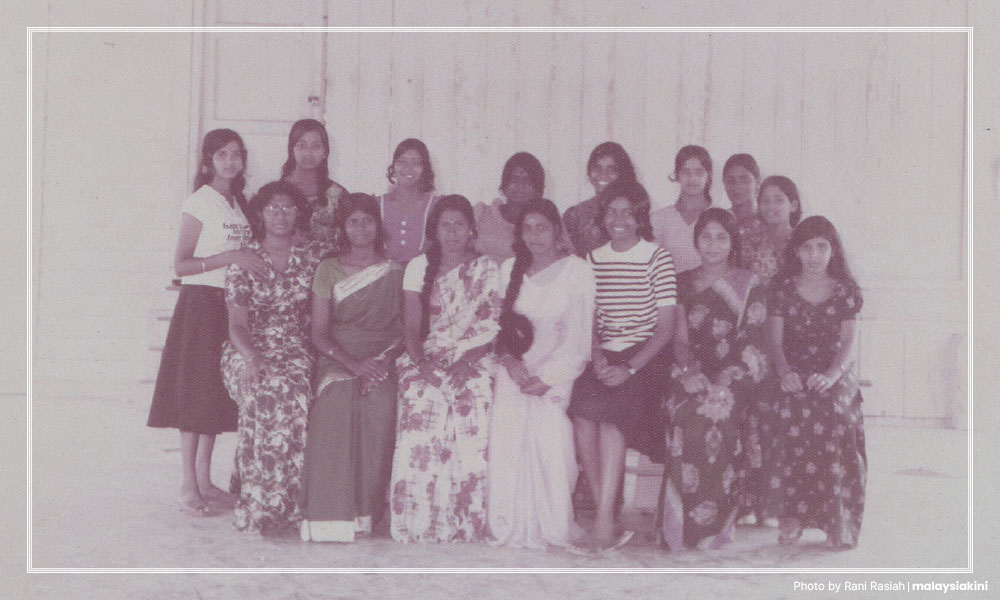
Her love for reading led her to pursue a degree in English Literature at Universiti Malaya, but it was reading articles on socialism that changed her life.
“Upon discovering the ideology of Karl Marx and understanding the capitalist system we were entrenched in, with its inherent rationale and sustaining institutions, I realised it was changeable.
“It’s not an immutable state of affairs.
“And this awareness slowly dawned on me when I started reading articles on socialism in university,” she said, recalling a time when left-leaning literature was scarce and books not available in Malaysia were photocopied and shared.
Serving the estates
Discovering socialism piqued her interest in social services and the need to discern the complex challenges that affect people’s lives.
This path unfolded when she joined the Tamil Language Society’s Student’s Service Corps to live with oil palm plantation workers in the Elphil, Sungai Krudda, and Heawood estates in Sungai Siput, Perak.
“Living with them for 10 days, we experienced the life of plantation workers and it allowed us to map out their needs, like the need for a kindergarten and tuition classes,” she said.
There, the students devised a system called “Kalvi Kulu”, where they would tutor the older children of plantation workers, who would in turn tutor the younger children.
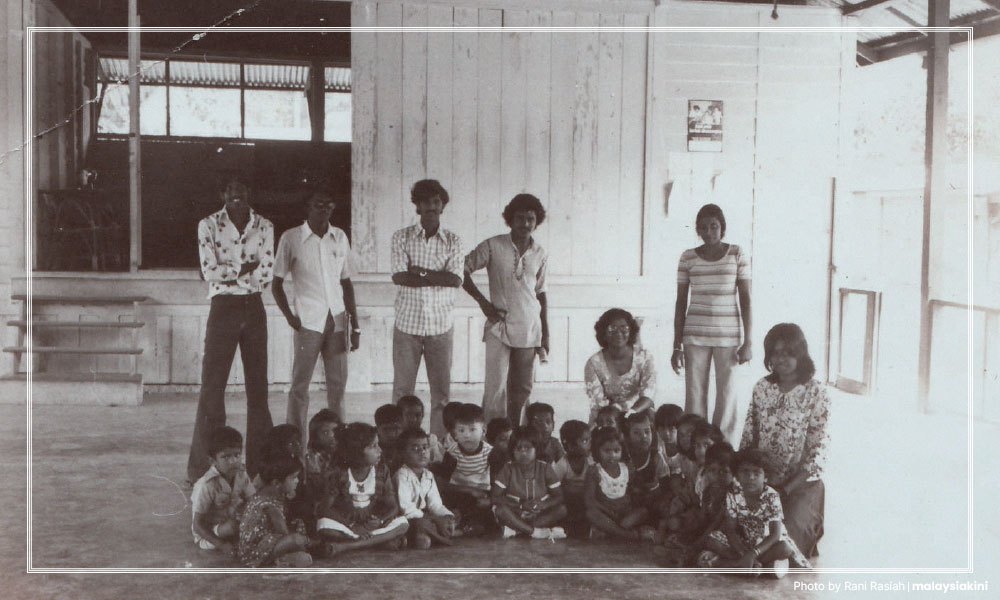
It was through her work in the plantations that she met her husband and lifelong ally, Jeyakumar, a respiratory specialist who was then a medical student at UM.
“The number of students returning there (the plantations) on university breaks dwindled to just a few of us,” she said.
As their classmates moved on upon graduation, the couple continued working with the families in the plantations, eventually setting up the social service NGO Alaigal in Sungai Siput after they married.
Their connection with the families there has lasted to this day.
Every year since 1987, she said, they hold a Labour Day concert called “Titisan Peluh” - a brainchild of the plantation workers who wanted to showcase their talents.
Devastating defeat
Despite her long service to the community, Rani’s debut into electoral politics in 2018 was devastating. She failed to secure 12.5 percent of the votes and lost her deposit.
That year, Rani was among 19 PSM candidates at the federal and state levels contesting in the general election which toppled the BN government. The election was also a washout for PSM.
“We all did badly and lost our deposits,” she said.
The defeat deeply affected her as she had by then served the community in Buntong for 20 years, working on issues of poverty, housing, and workers’ rights.
But it also taught her that more needed to be done to expose the electorate to the values espoused by PSM, and this meant canvassing for votes in a way she is most comfortable in - providing service.
Since then, she said, many of the people whom PSM has helped have joined their ranks.
“While helping those who reach out to us, like workers, we empower them with analytical thinking.
“Throwing questions to them like who selects the contractors, who issued the tenders, why no action has been taken despite their complaints lodged.
“They start to see the bigger picture and understand our role and by joining us, they strengthen PSM,” she said.
A group disinterested in politics
It was a similar realisation which led Rani and her comrades to form PSM.
Disinterested in partisan politics, the group was initially more keen on engaging in grassroots work with marginalised communities.
But the more they engaged in the work, the more they realised how partisan politics is intricately intertwined with their everyday lives.
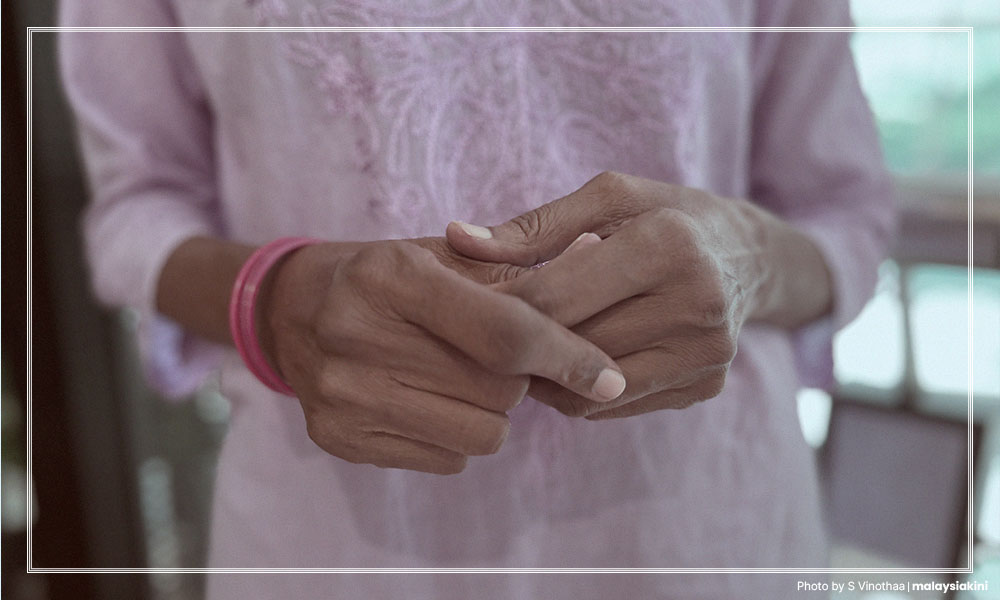
“Initially, the notion of forming a political party wasn’t on our agenda. However, as the need for a platform became evident, we adapted.
“During the lead up to the 1990 and 1995 general elections, our campaigns focused on clarifying with the electorate their demands from the candidates - addressing issues like urban development for residents and understanding estate workers’ demands.
“Our goals remain consistent - to advocate for policy changes supporting our ground-level work,” said Rani.
However, they found their advocacy work had limited impact because many candidates did not even have long-term plans for issues affecting the people.
This led to the formation of PSM in 1998.
Always pushing forward
It would take another decade and a court challenge to finally get PSM registered with the Registrar of Societies, which initially challenged the application on purported grounds of non-compliance.
When the government finally consented to its registration in 2008, Rani’s husband Jeyakumar was already elected as MP of Sungai Siput while PSM’s president Mohd Nasir Hashim won the Kota Damansara state seat. They both contested on the PKR ticket.
Although Jeyakumar retained his seat as PSM’s sole MP for another term in 2014, the party has not won a single seat since 2018.
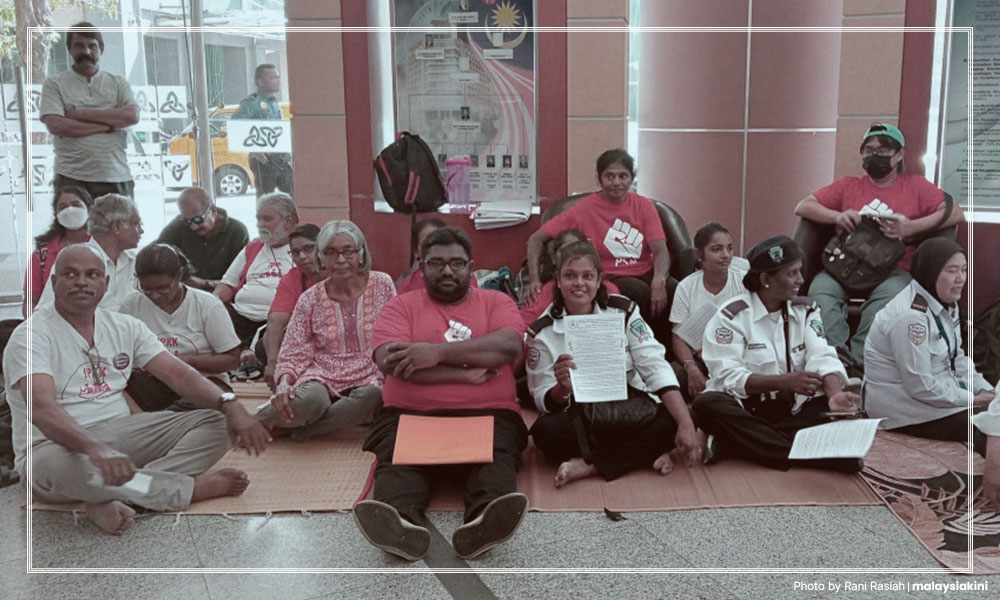
Party members continued to face crackdowns - some of which were violent - as they advocated for their causes.
It is thus an understatement to say that PSM and Rani’s political journeys continue to be an uphill trek.
But entering the seventh decade of her life, Rani keeps pushing forward.
“I will continue to fight for a more equal society for as long as I can.”
MALAYSIANSKINI is a series on Malaysians you should know.




No comments:
Post a Comment
Note: Only a member of this blog may post a comment.